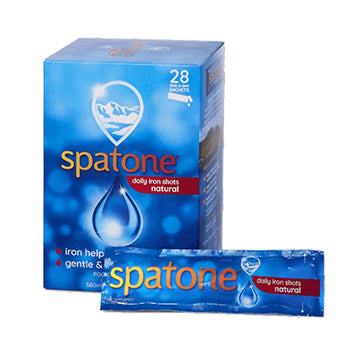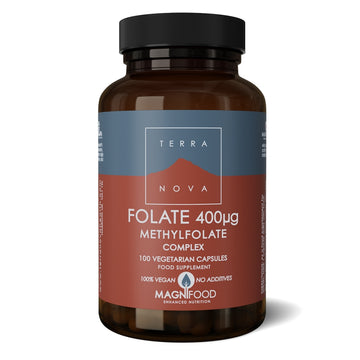It's no secret your body goes through major changes during pregnancy and you need to up your game when it comes to nutrition to support your growing bump. However, proper post-pregnancy nutrition is just as important as pre-pregnancy especially if you're breastfeeding. Your growing baba is relying on you for their nutrients. So today we're going to take a look at what's need for the post-pregnancy diet for new mamas.
Post-Pregnancy Body
The immediate aftermath of labour (post-partum period) can come as a bit of a shock to the system, particularly if you've had a very healthy pregnancy. Muscle aches and pains, blood loss, healing tissues, and establishing breastfeeding - all combined with sleep deprivation can leave you feeling like you've been hit by a bus! For many food is more of an afterthought.
Are there special nutritional facts we should be taking into consideration in the post-partum period (besides the whole getting your body ‘back into shape’ and putting unnecessary pressure on yourself)?
It may be news that it takes 12 weeks for the body’s physiology to return to normal after giving birth. That means that it takes up to 3 months for the heart, lungs, liver and blood system just to get back to a pre-pregnant state. And that is when there have been no complications or surgery such as a Caesarean section involved.
Post-Pregnancy Nutrition: Tips for New Mums
As all the focus now shifts to care of the baby, mum’s welfare is at risk of becoming lost in the background. Without an obvious bump to remind everyone that this is a time of greater need (combined with the challenges of new parenthood, or juggling baby with older siblings), eating on the go, and skipped meals can become a pattern all too easily.
But your food choices are still so important - not only does your body need to recover, it's important for your hormones, milk production if you're breastfeeding and your energy levels. Here are some post-pregnancy nutrition tips to keep in mind.
Breastfeeding
This is where the phrase eating for two should really be applied. A mother who is breastfeeding can require up to 500 extra calories or a 25% increase in average calorie intake per day. Breastfeeding will cause through hormone feedback and increased energy requirements, an efficient reduction in the size of the womb after birth and potentially a quicker return towards baseline weight.
In many, weight loss can soon exceed baseline weight and it's worthwhile having a weight check at the six week GP appointment to see if you need to increase calorie intake accordingly.
Quality, not Quantity!
When it comes to post-pregnancy nutrition, the quality of the extra food is important also. While there's never a better excuse to indulge in the odd bar of chocolate, the extra calories should be gotten through good quality starchy carbohydrates and protein. Dairy products are also ideal thanks to their fat and protein content and high calcium levels.
Try your favourite nut butter and banana on wholegrain toast as a high calorie nutritious snack that can be quickly prepared. Bear in mind caffeine and alcohol are found in small amounts in breast milk and should be taken with care.
Weight Gain during Pregnancy
The average weight gain during pregnancy is advised to be approximately 2 stone (12kg) but many do gain more than this or may have had a pre-pregnancy weight above the healthy range. In this case, particularly if not breastfeeding, the most important thing to remember is to work slowly towards a target weight focusing on portion control, a balanced diet and exercise.
Essential Vitamins & Minerals
While all new mothers will have their reserves lowered by their pregnancy, there are some particular circumstances that can lead to an increased depletion of micronutrients.
- In teenage pregnancy, the mother’s body itself is still growing while also trying to sustain a baby.
- With women often starting their families later these days, there is often shorter gaps between pregnancies.
- Blood loss at the time of delivery or secondary to surgery may compound Iron levels already low after the pregnancy itself.
- Women with a history of thyroid disorders will need careful monitoring during and after pregnancy
- Breastfeeding is the source of micronutrients for the baby. Just as a diet rich in vitamins and minerals is vital from preconception onwards in order to develop a healthy baby in utero, a mother’s postpartum nutrition continues to support the newborn during this vital period of growth (formula, as a result, is required to contain these micronutrients also).
There are certain vitamins and minerals that are essential for post-pregnancy nutrition. Iron, folic acid and vitamin D are all important. Research also highlights the need for riboflavin, B6, B12, selenium, zinc, vitamin A in both foetal and maternal health.
It's best to try and get these nutrients through a wide and varied diet but in some cases, a multivitamin specifically for the postpartum/lactation period can be beneficial.
Visit Your GP
Finally, for women who have experienced diabetes during pregnancy or have had a history of thyroid dysfunction, it is important to make time for a follow up visit with your GP to discuss these issues.
Women who have had gestational diabetes are at an increased future risk of developing Type 2 diabetes. As a new parent, your health is precious, not only to just you now - chat with your GP and you can discuss a multidisciplinary approach towards prevention.
Please note, this blog is for informational purposes only and should not replace medical advice.
It’s always best to consult your doctor before taking any new supplements, treatments or remedies if you are pregnant, breastfeeding or on medication.
Are you looking for more pregnancy information? Read our blog 'Pregnancy & the Vaginal Microflora with Optibac'.
Checked and updated: 11 August 2021
















